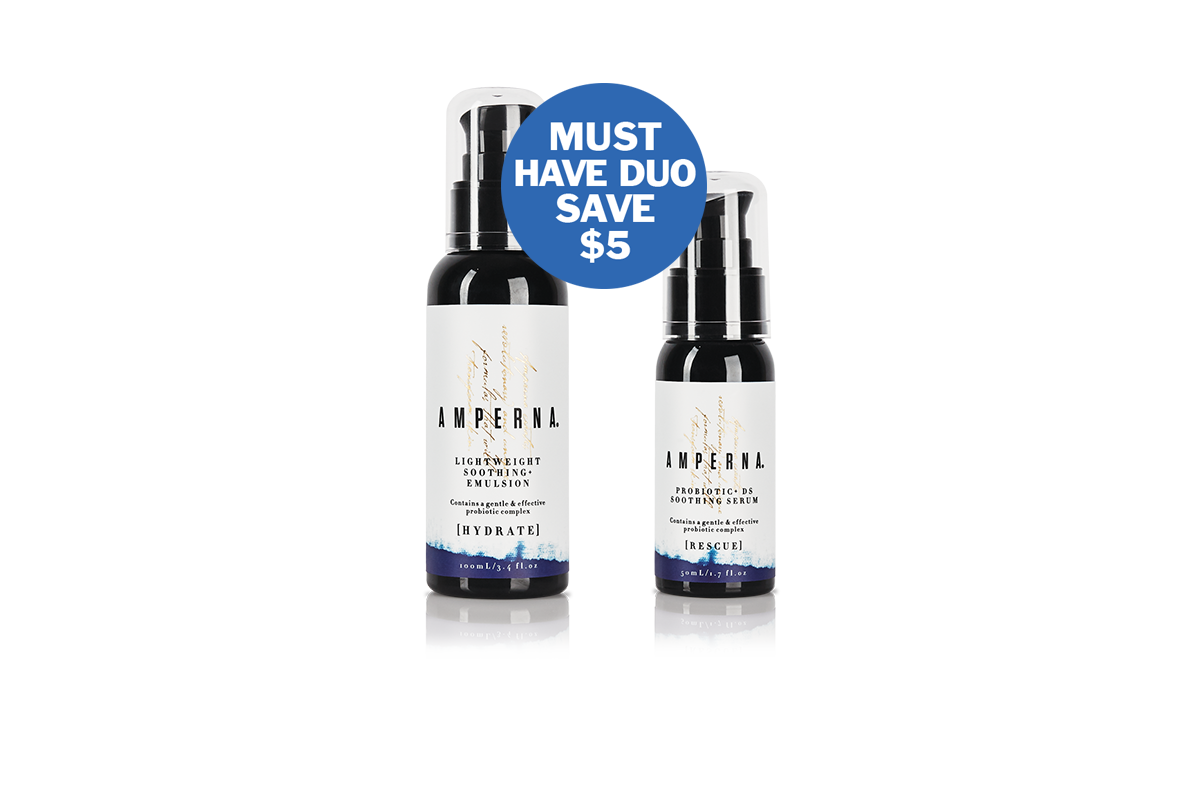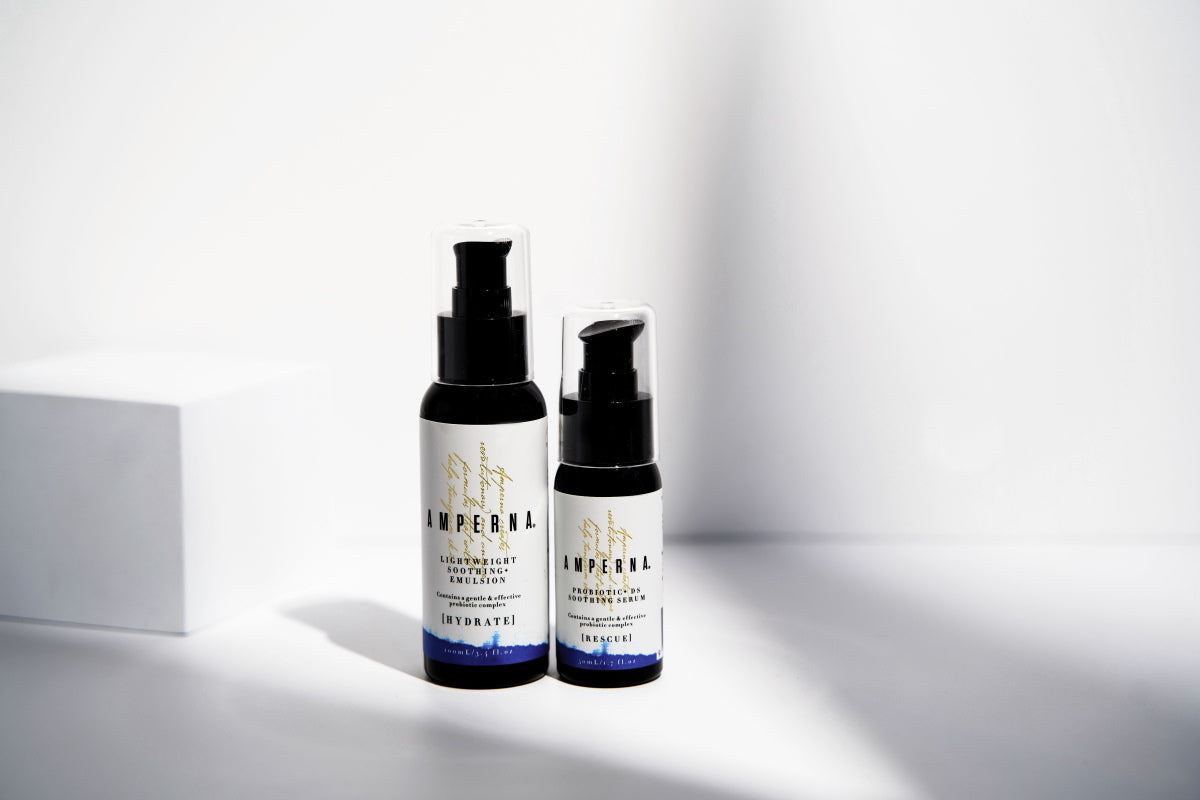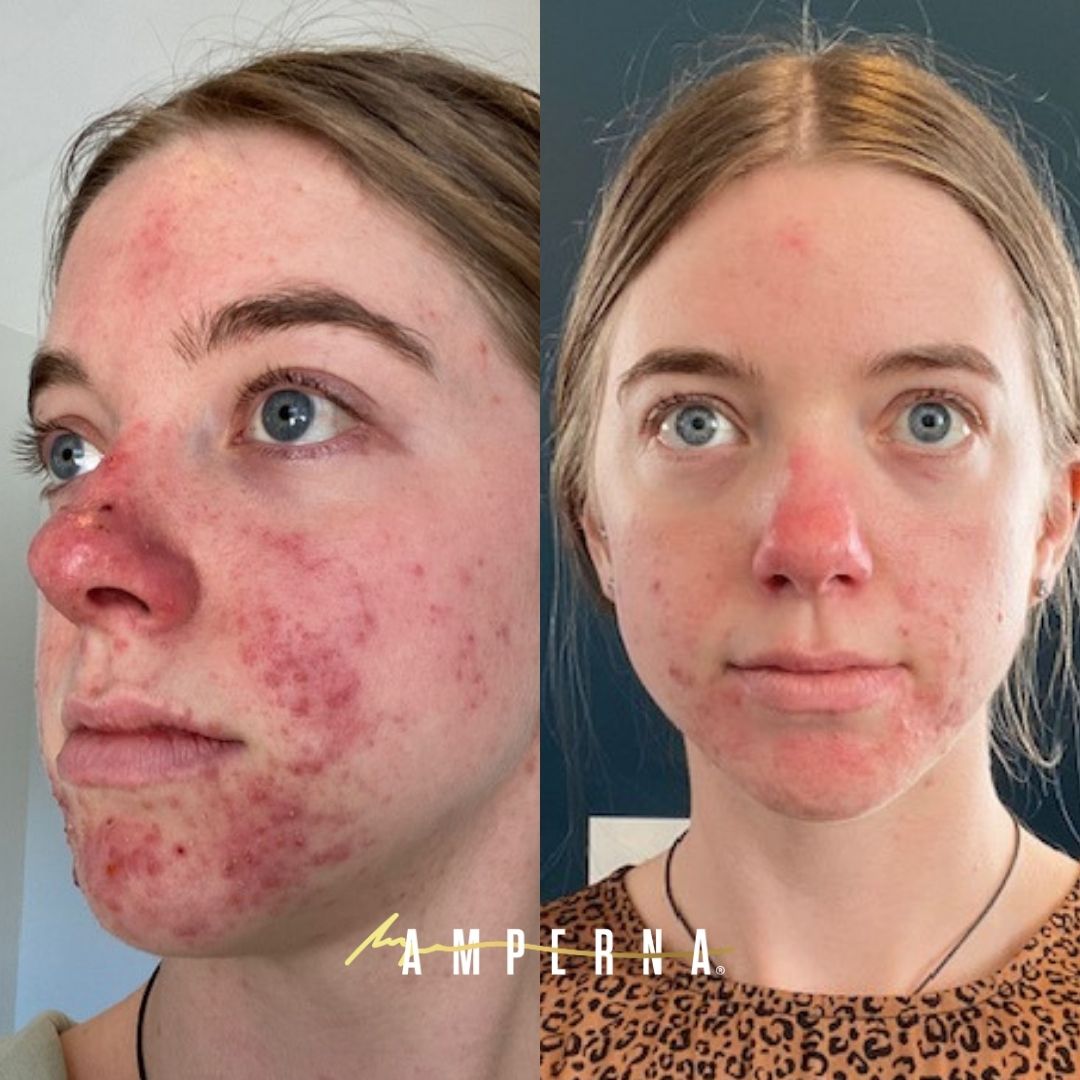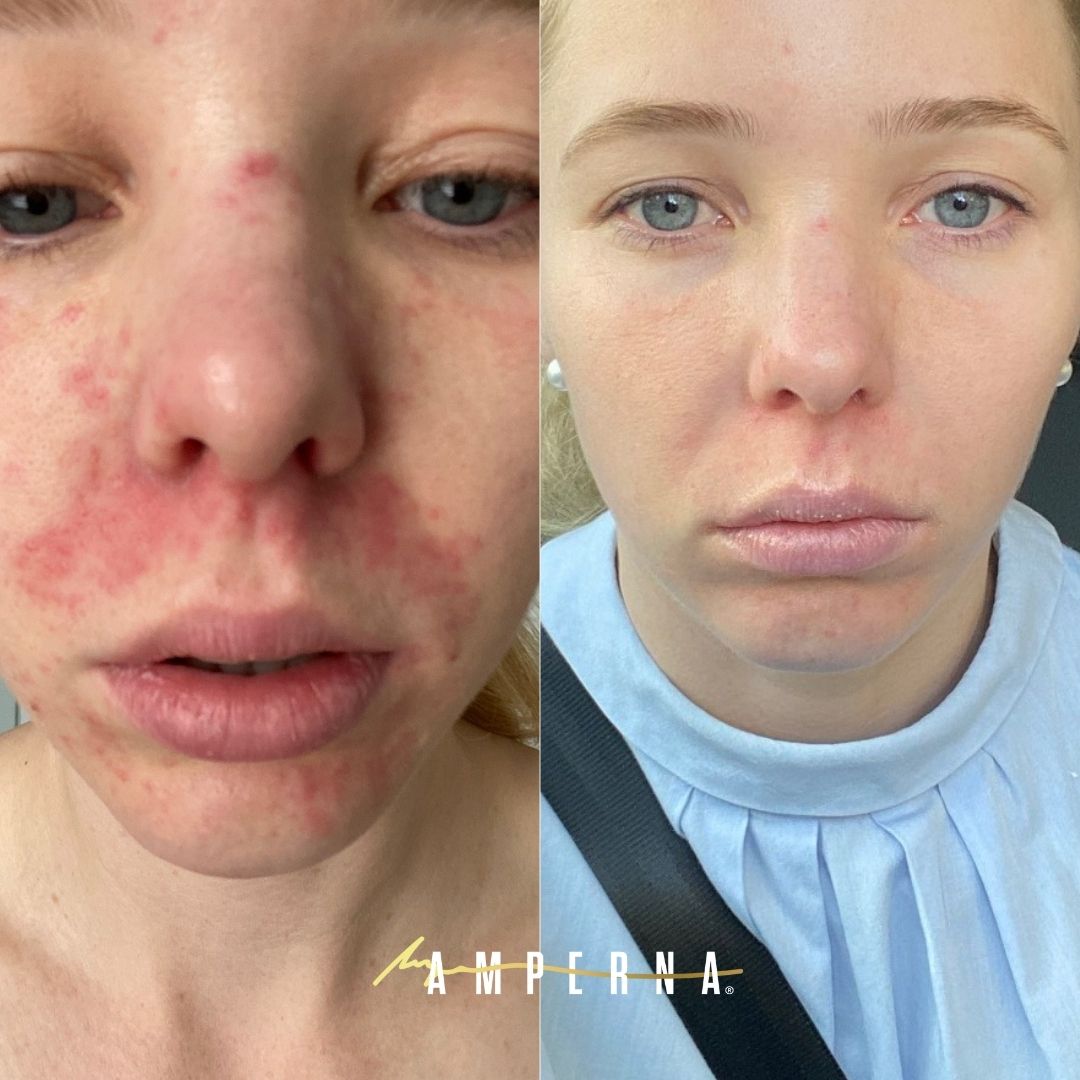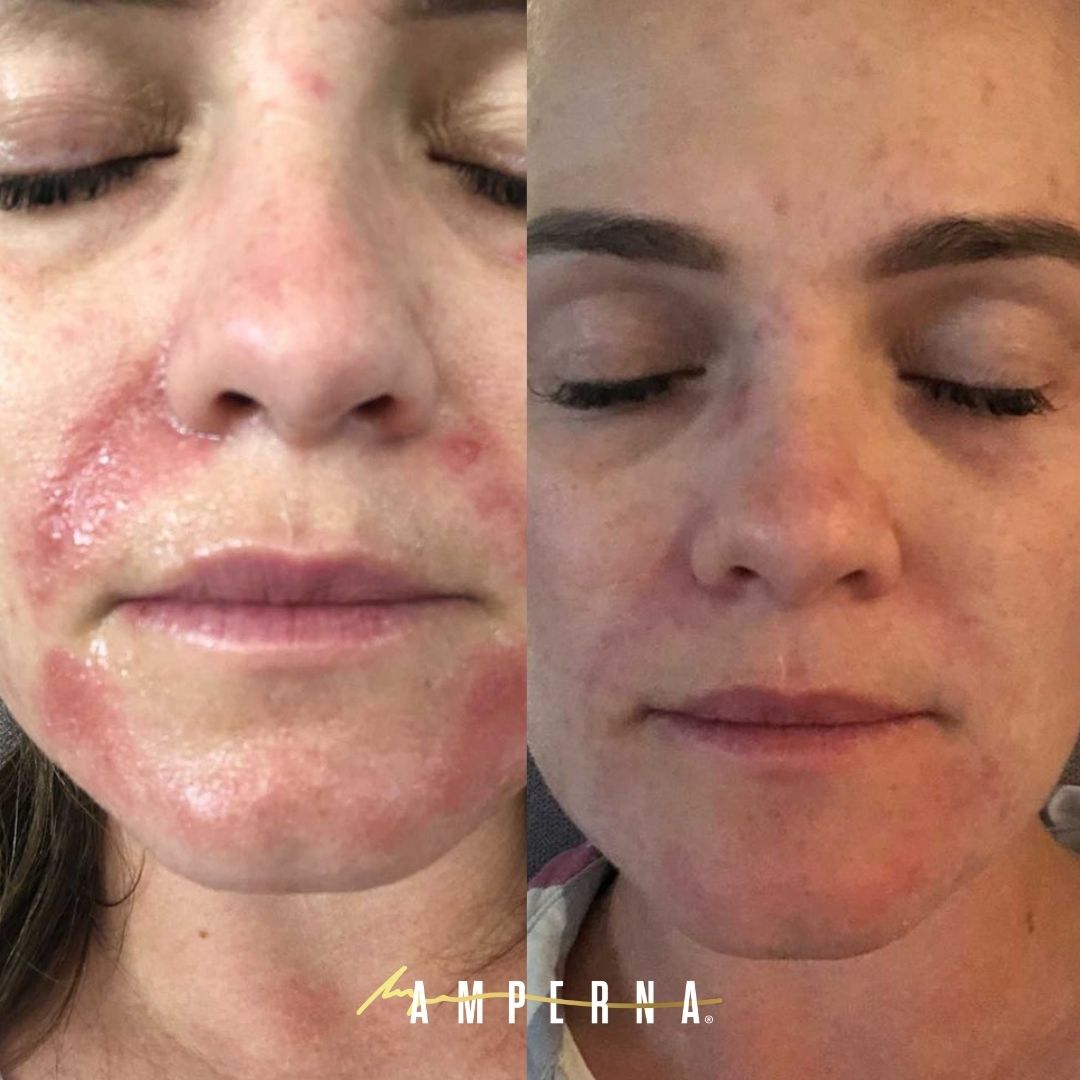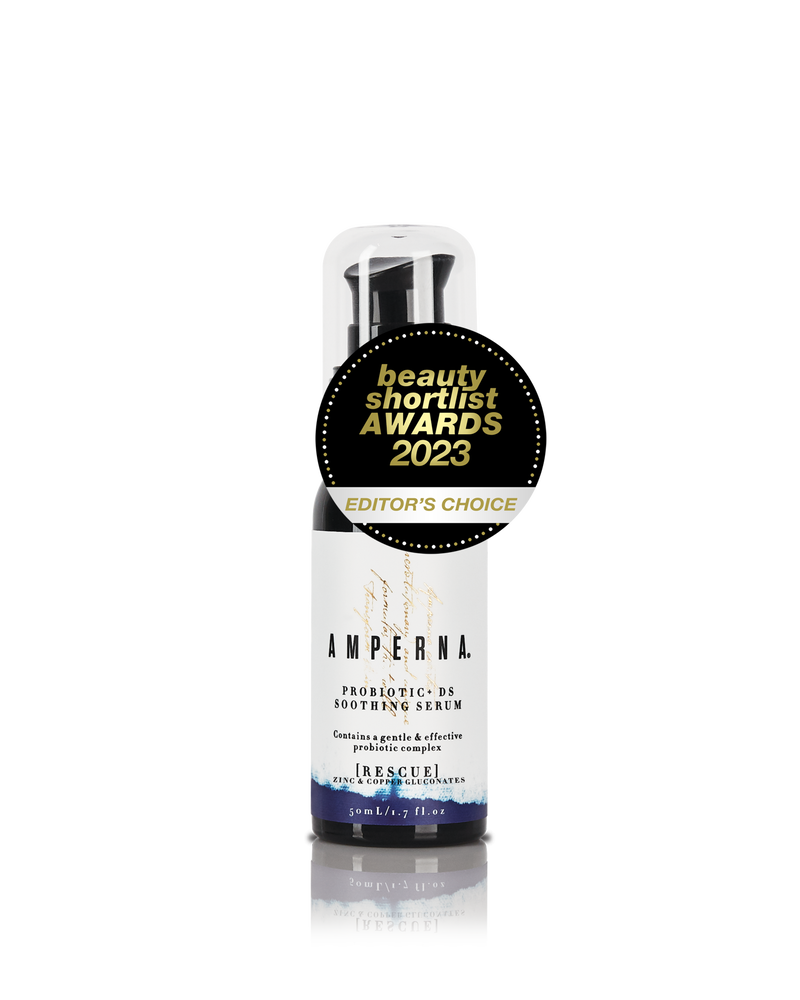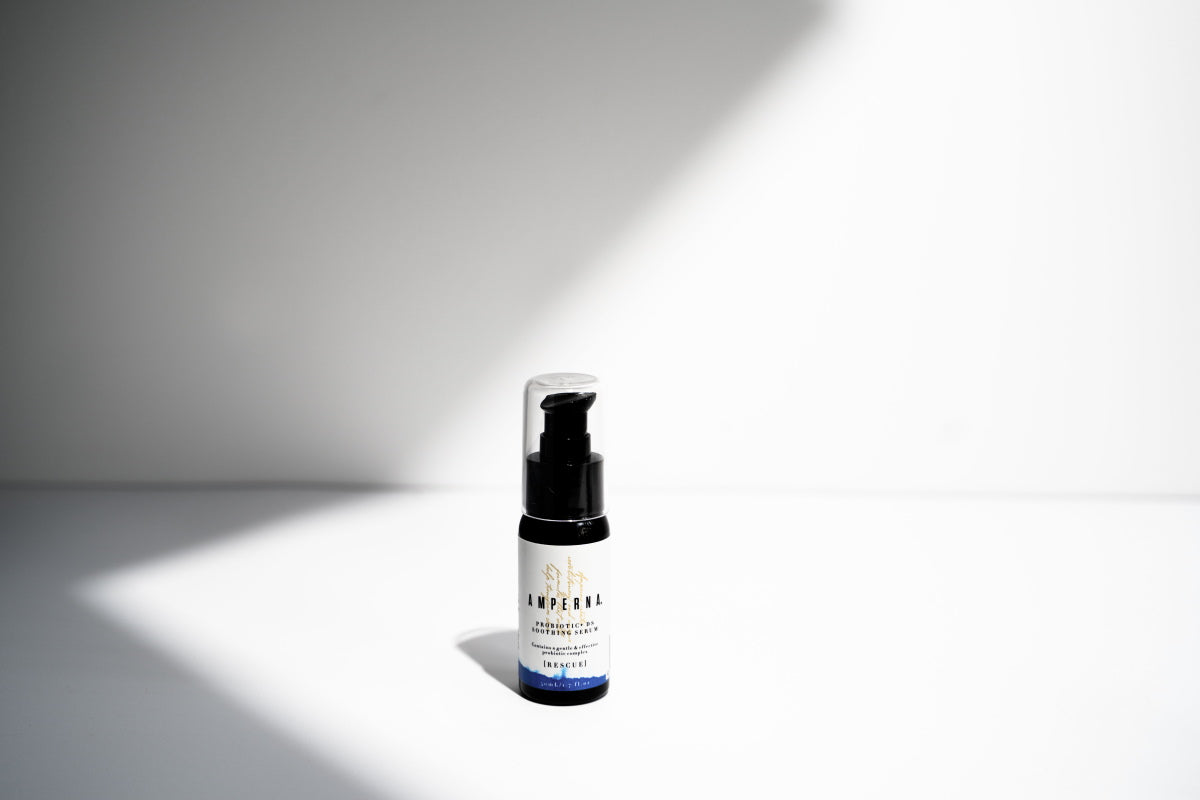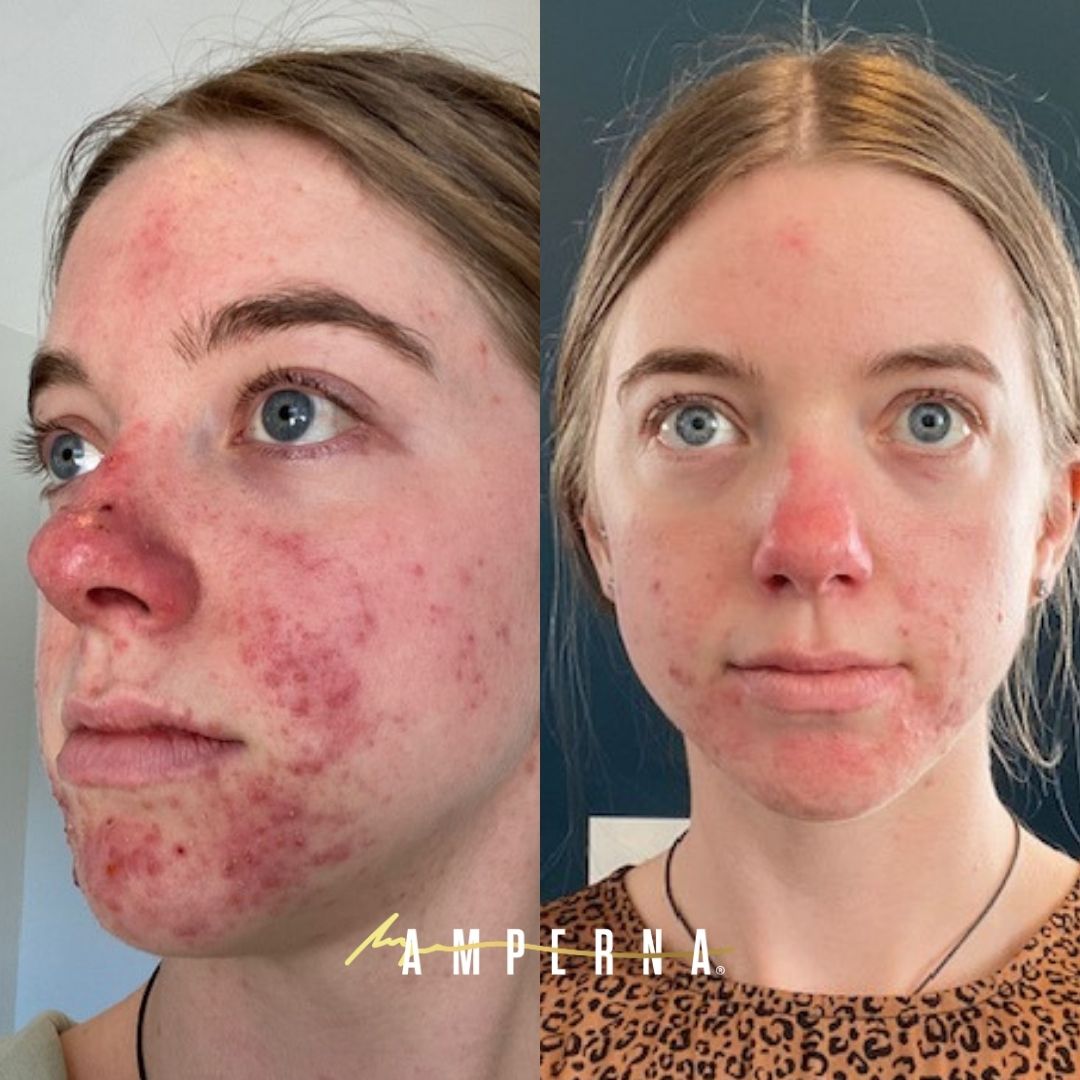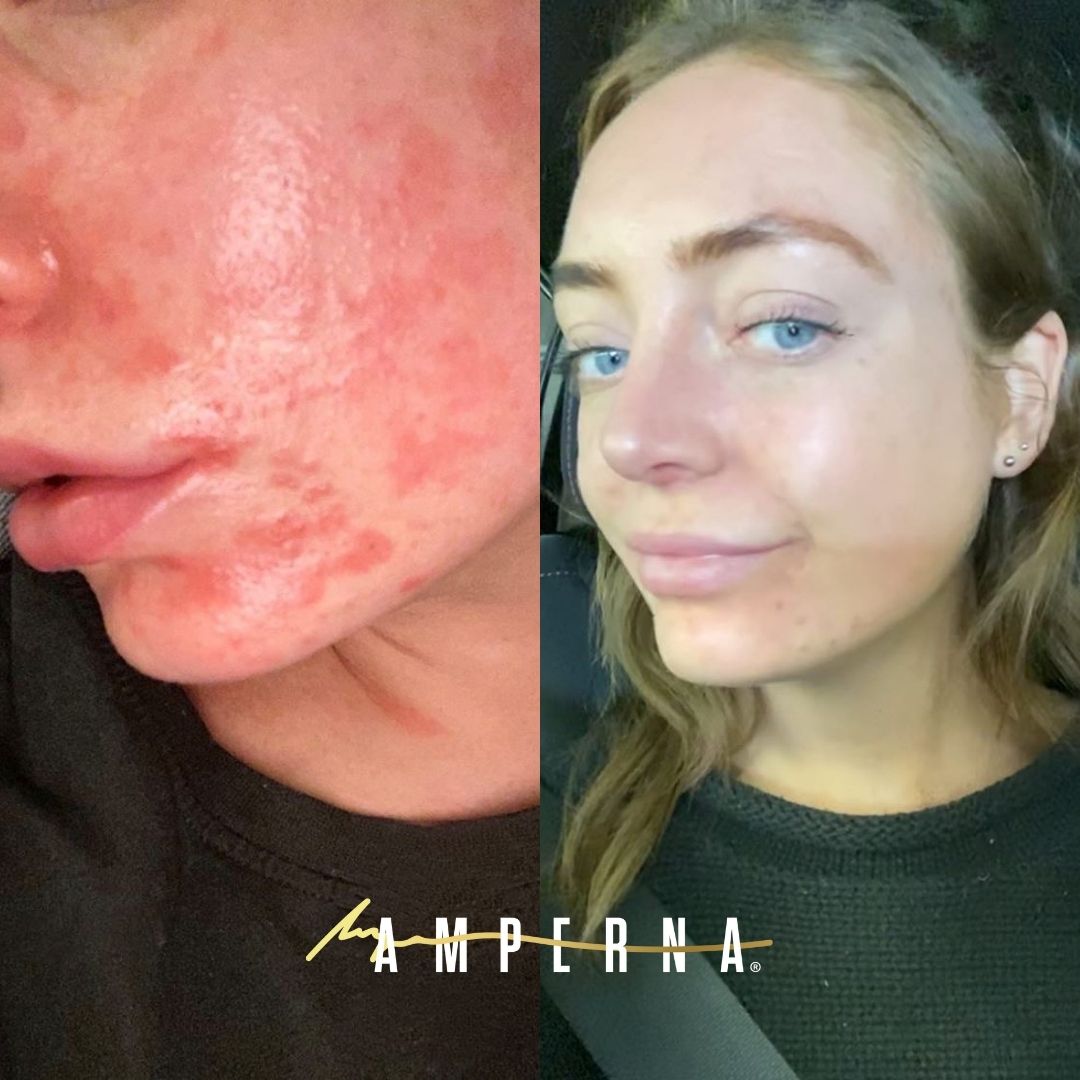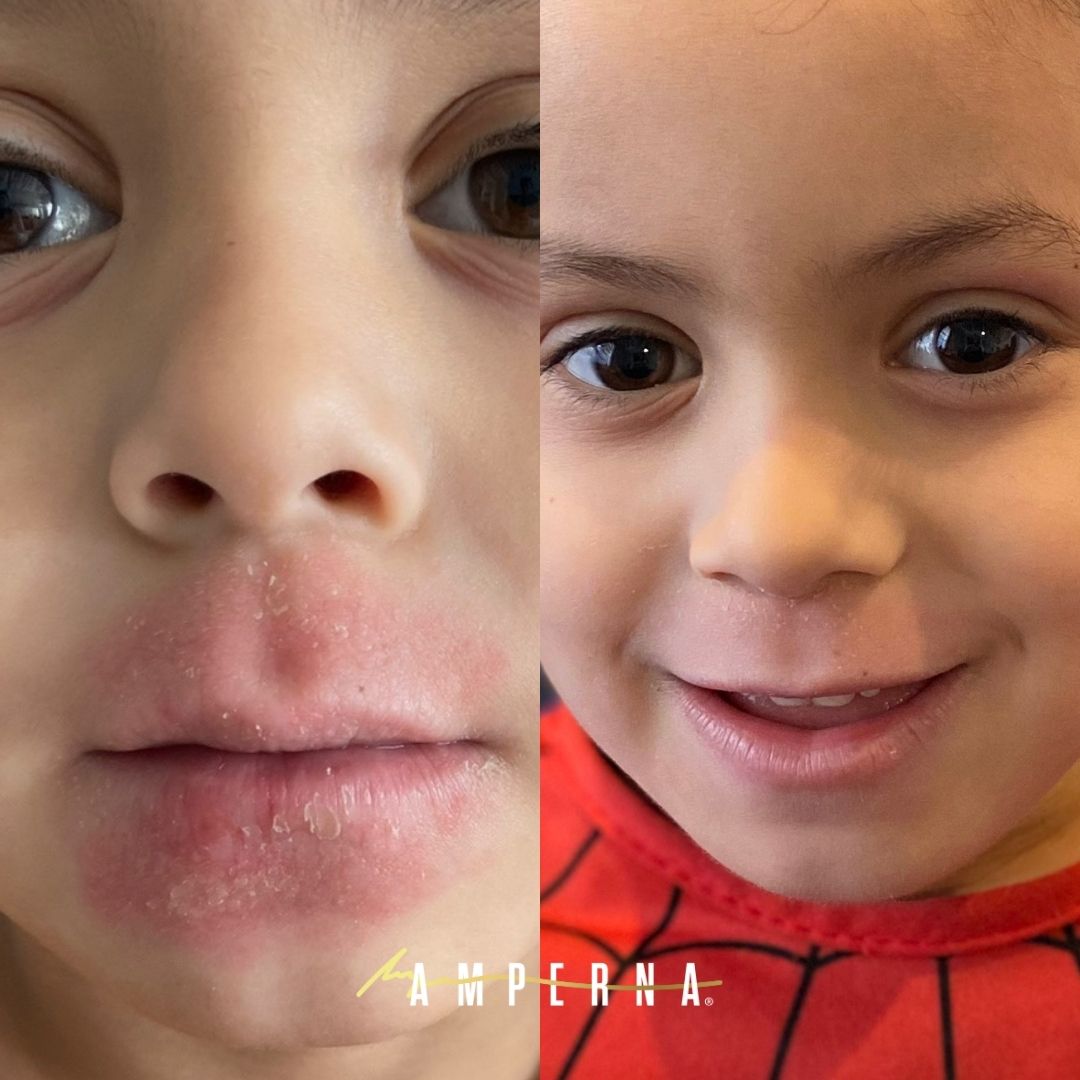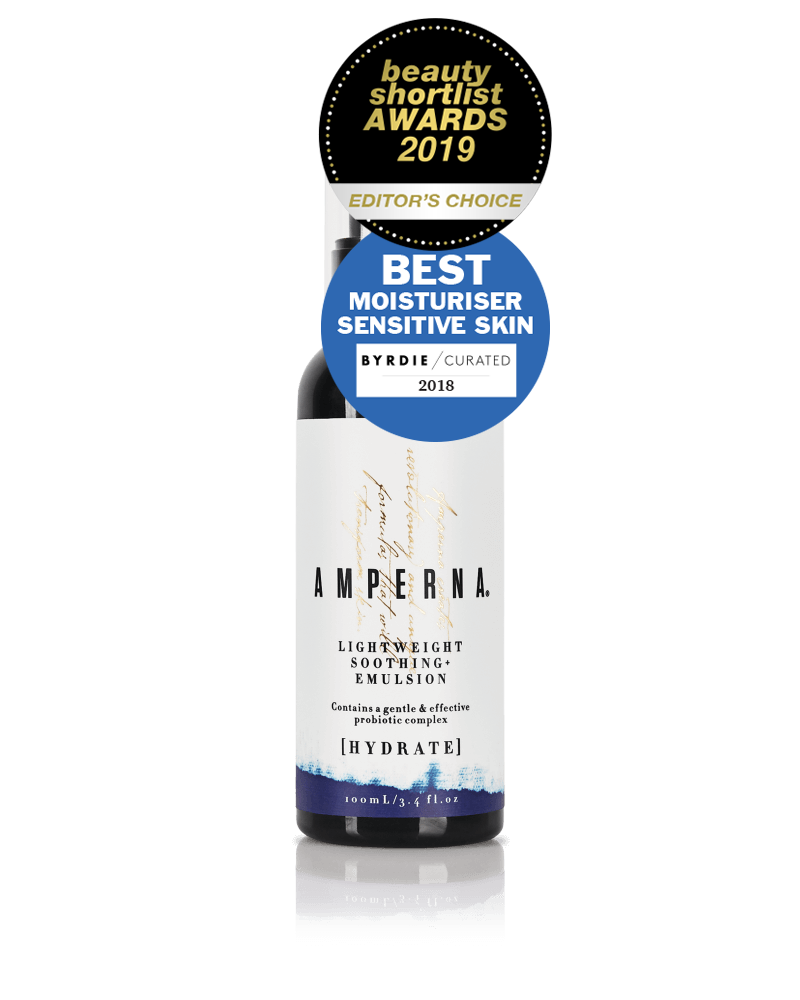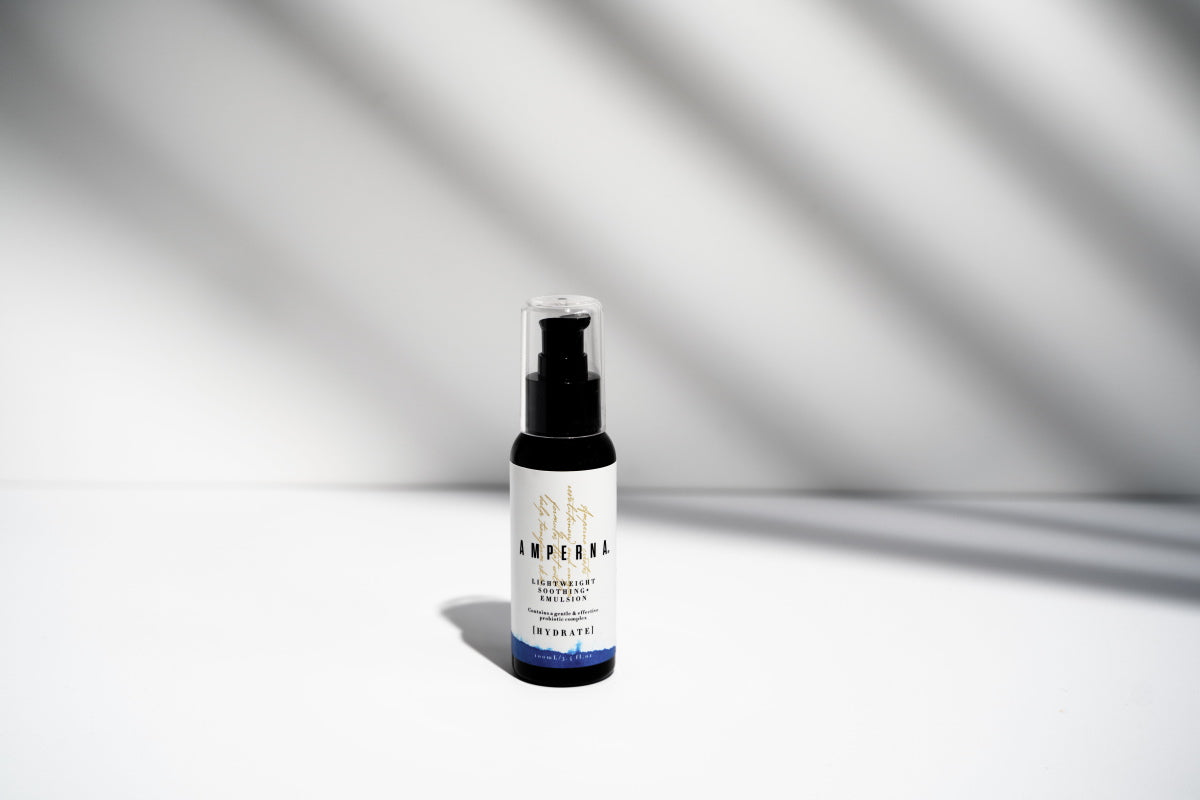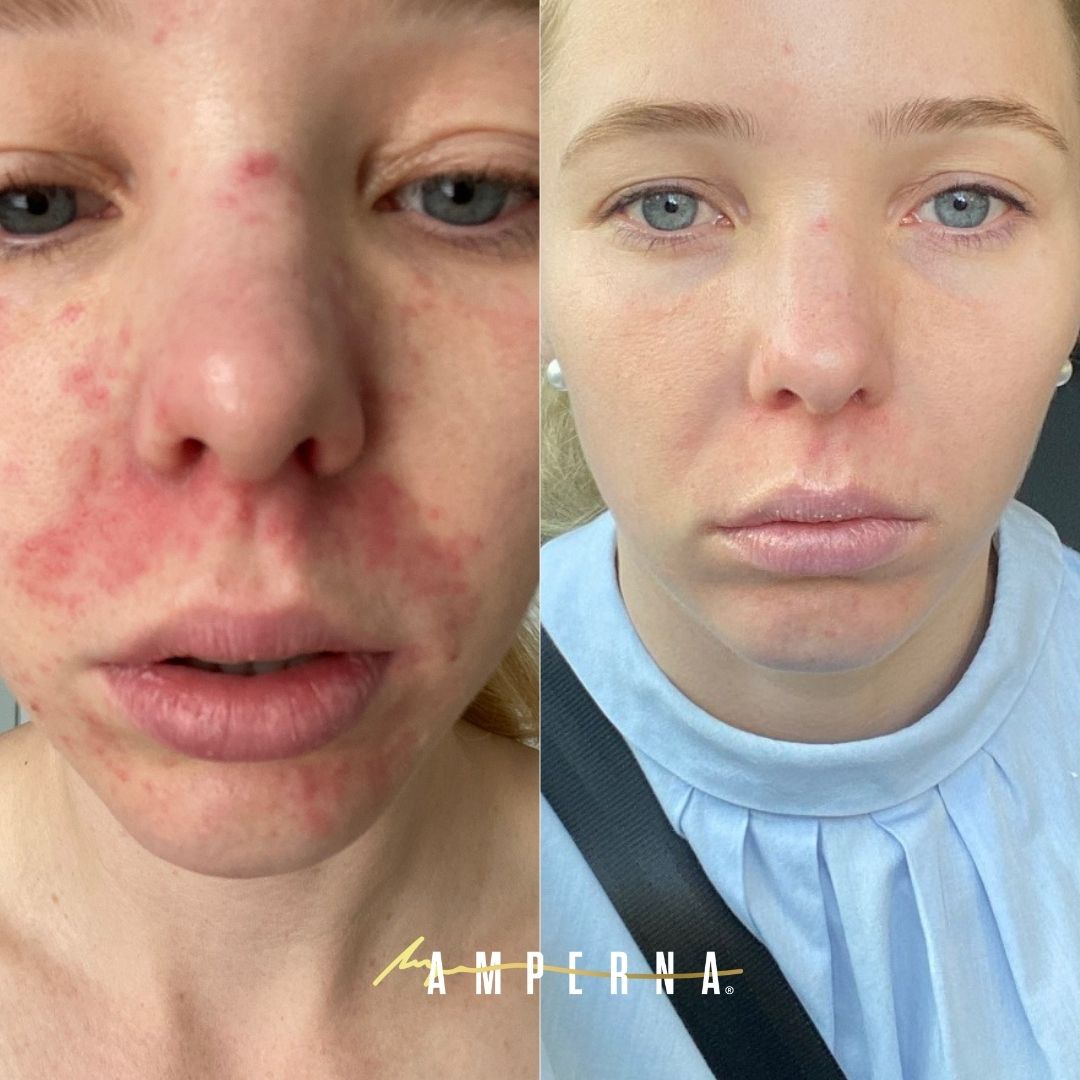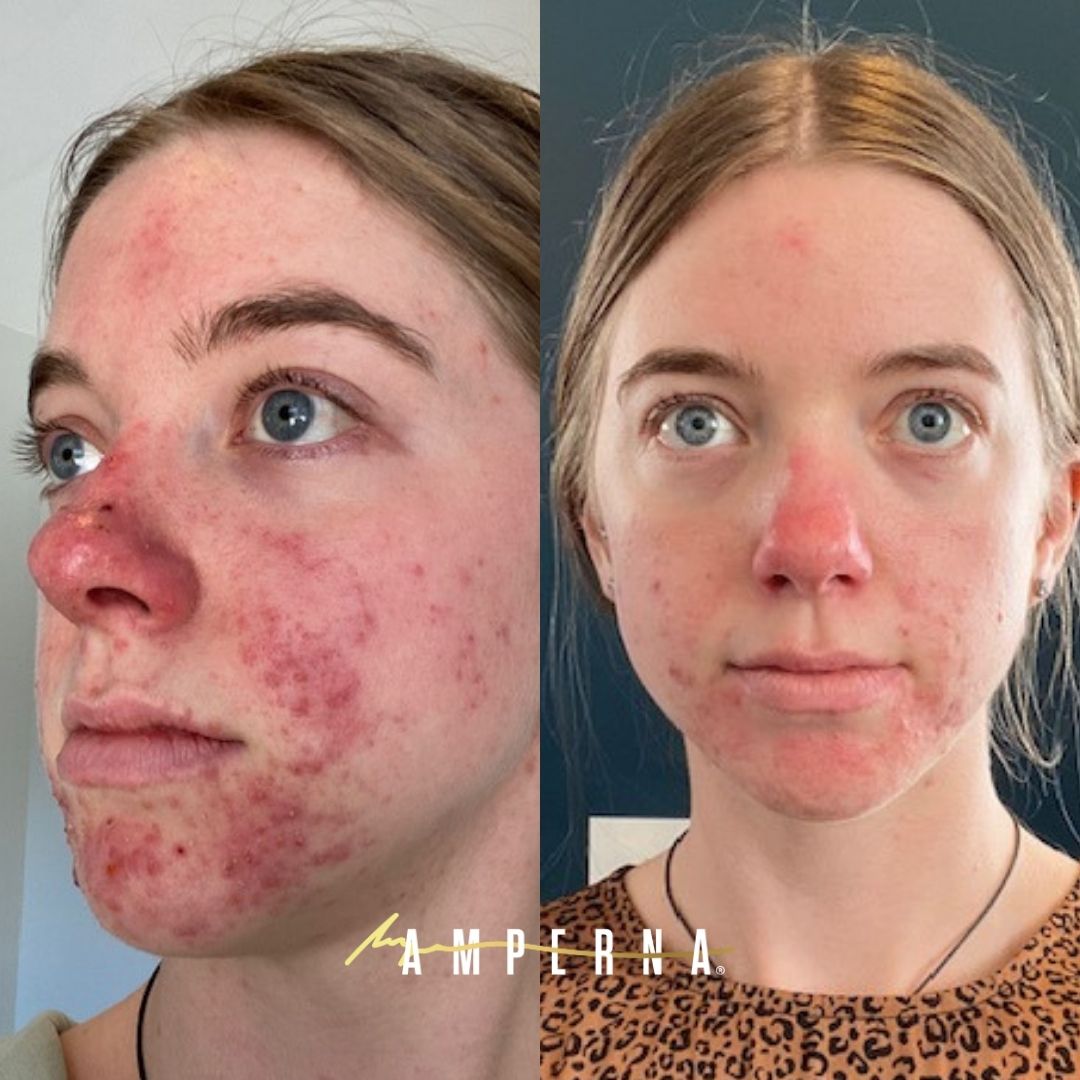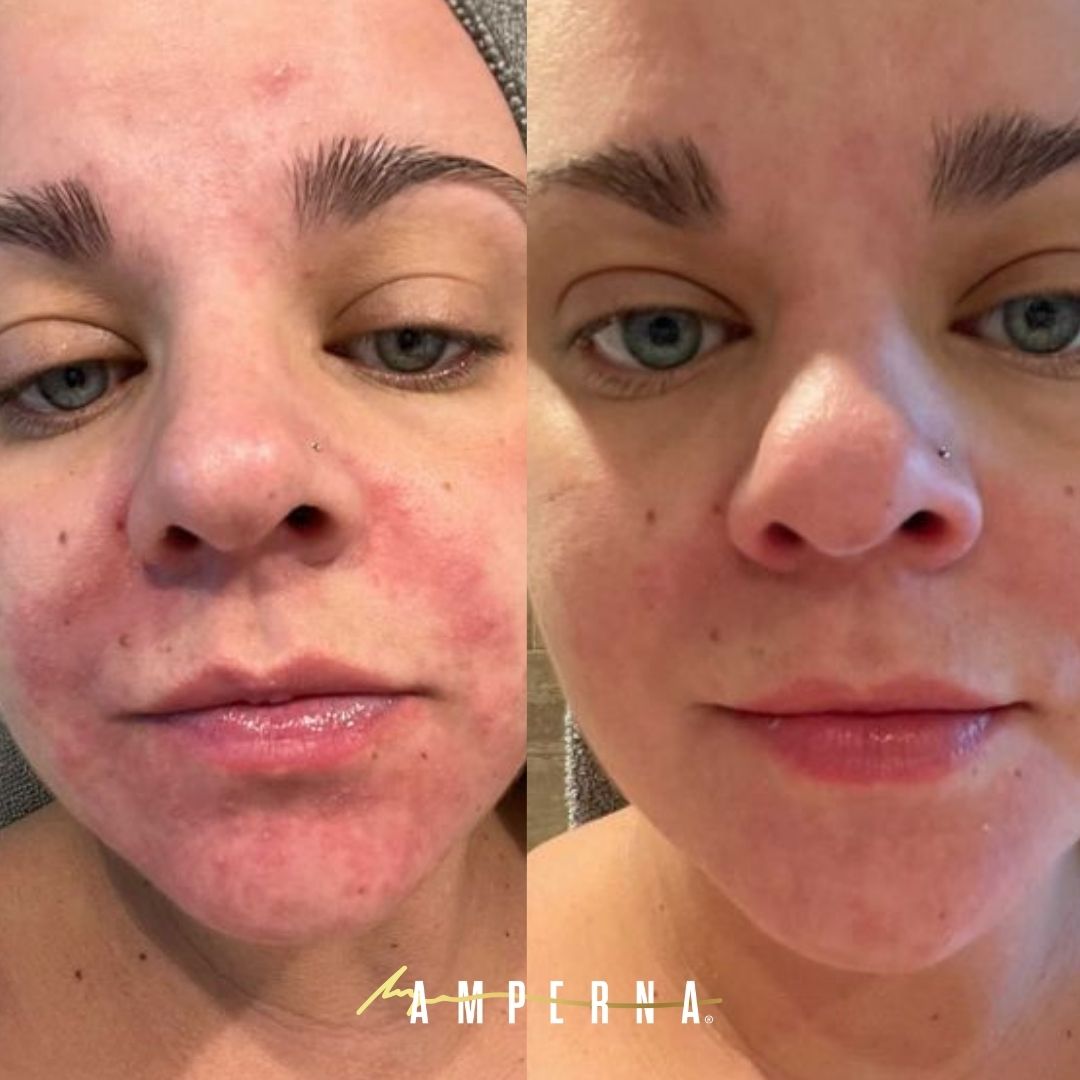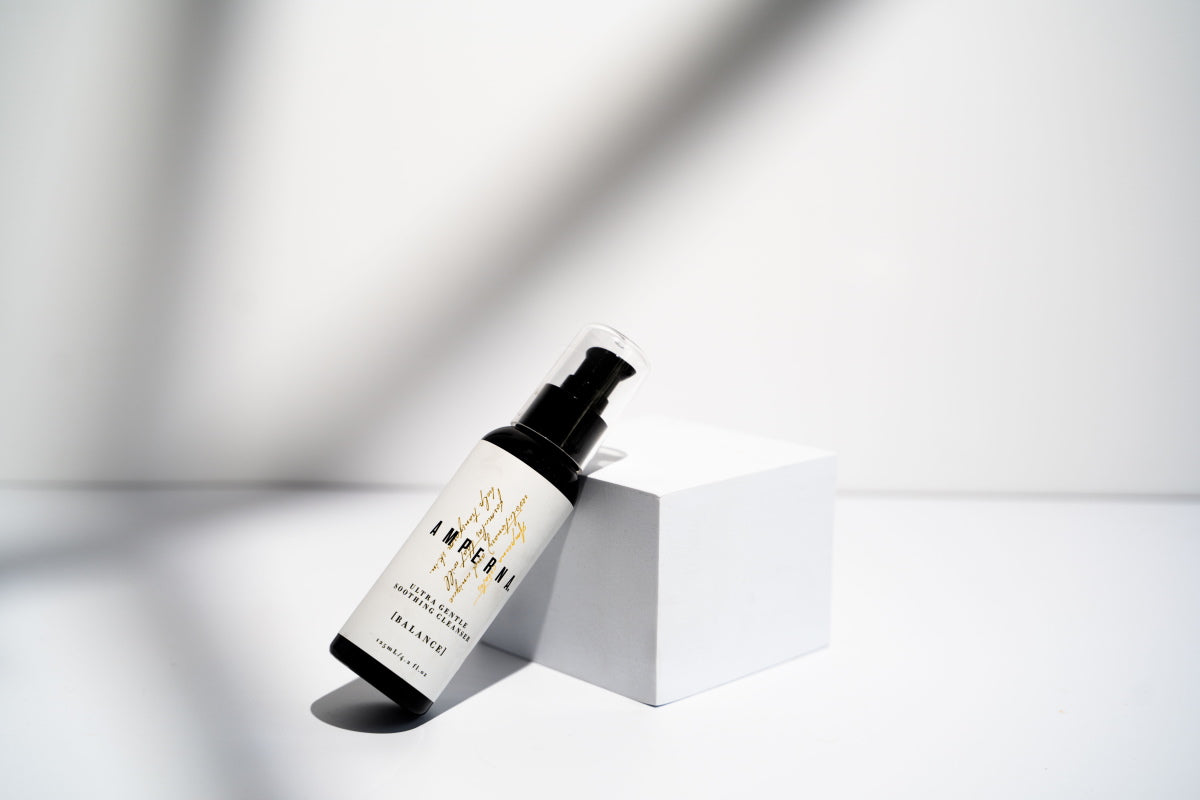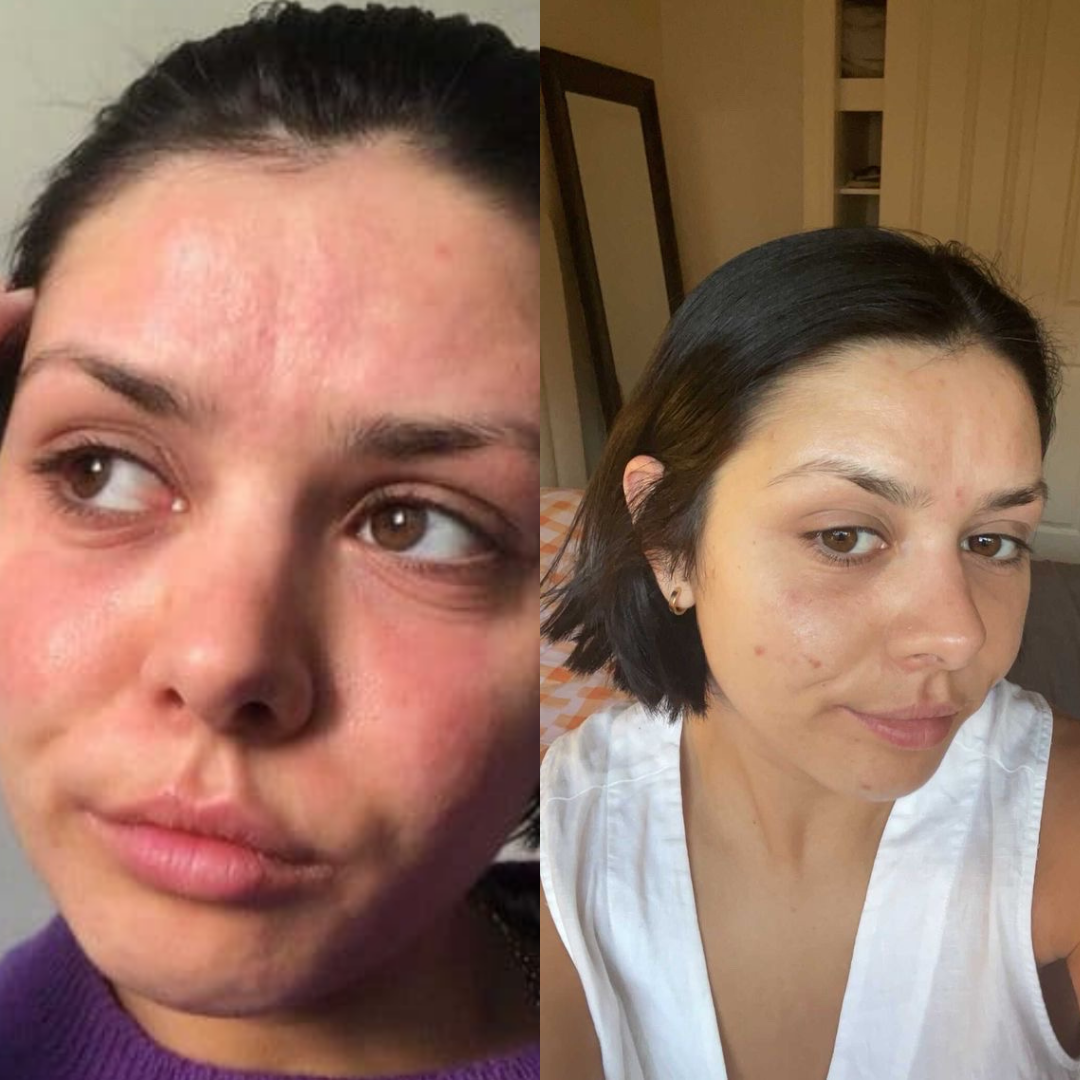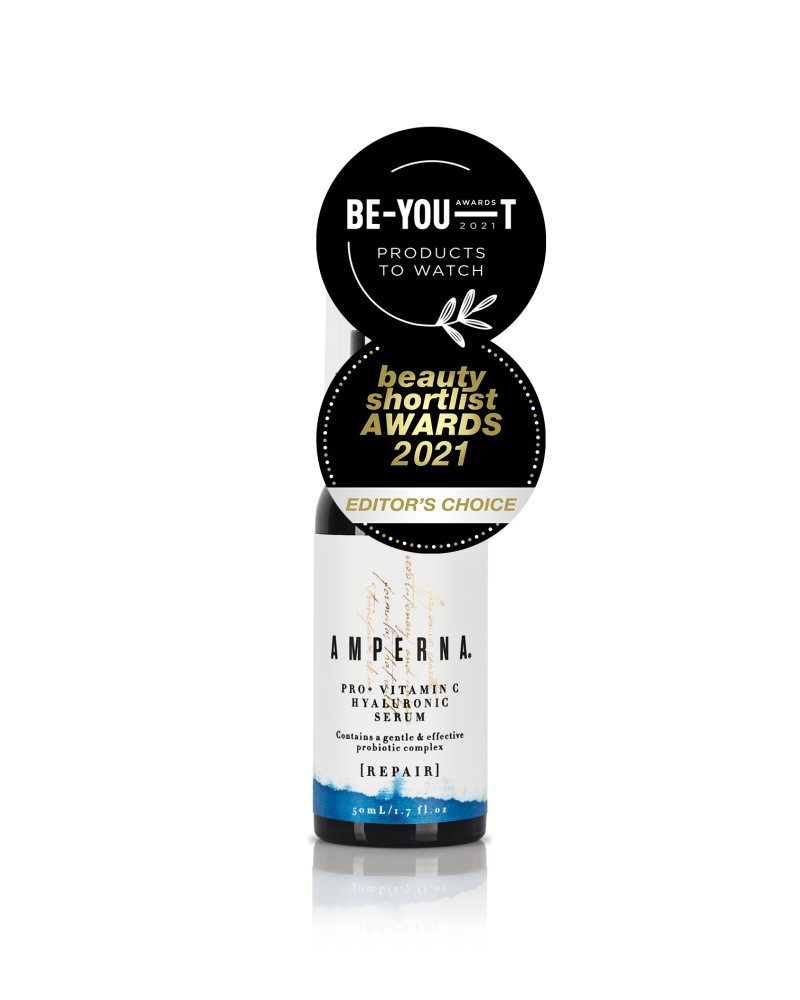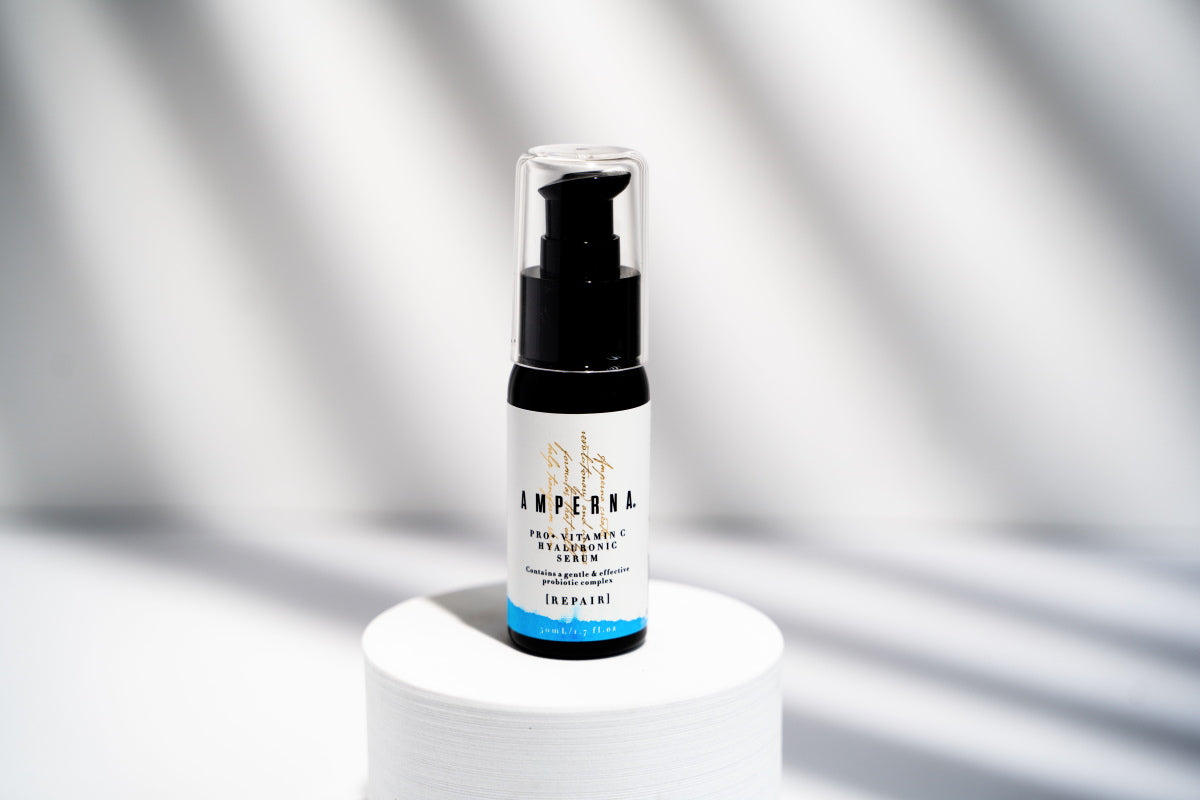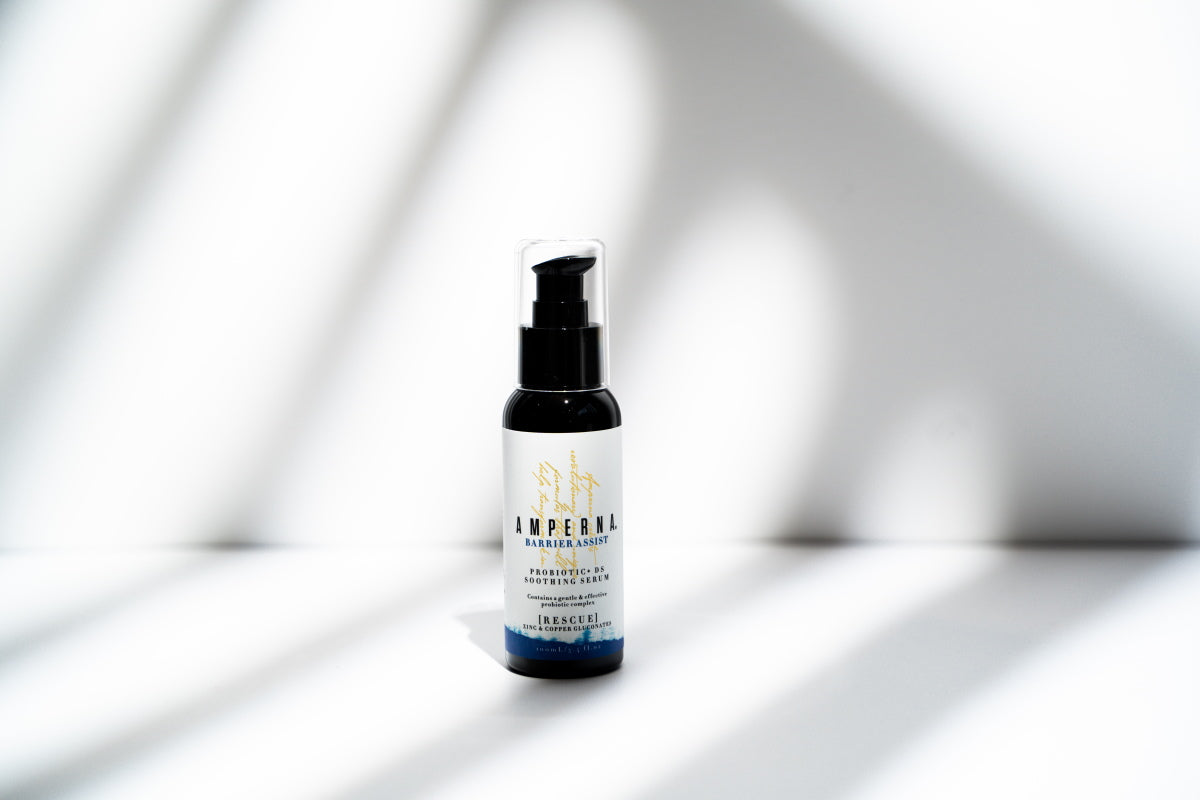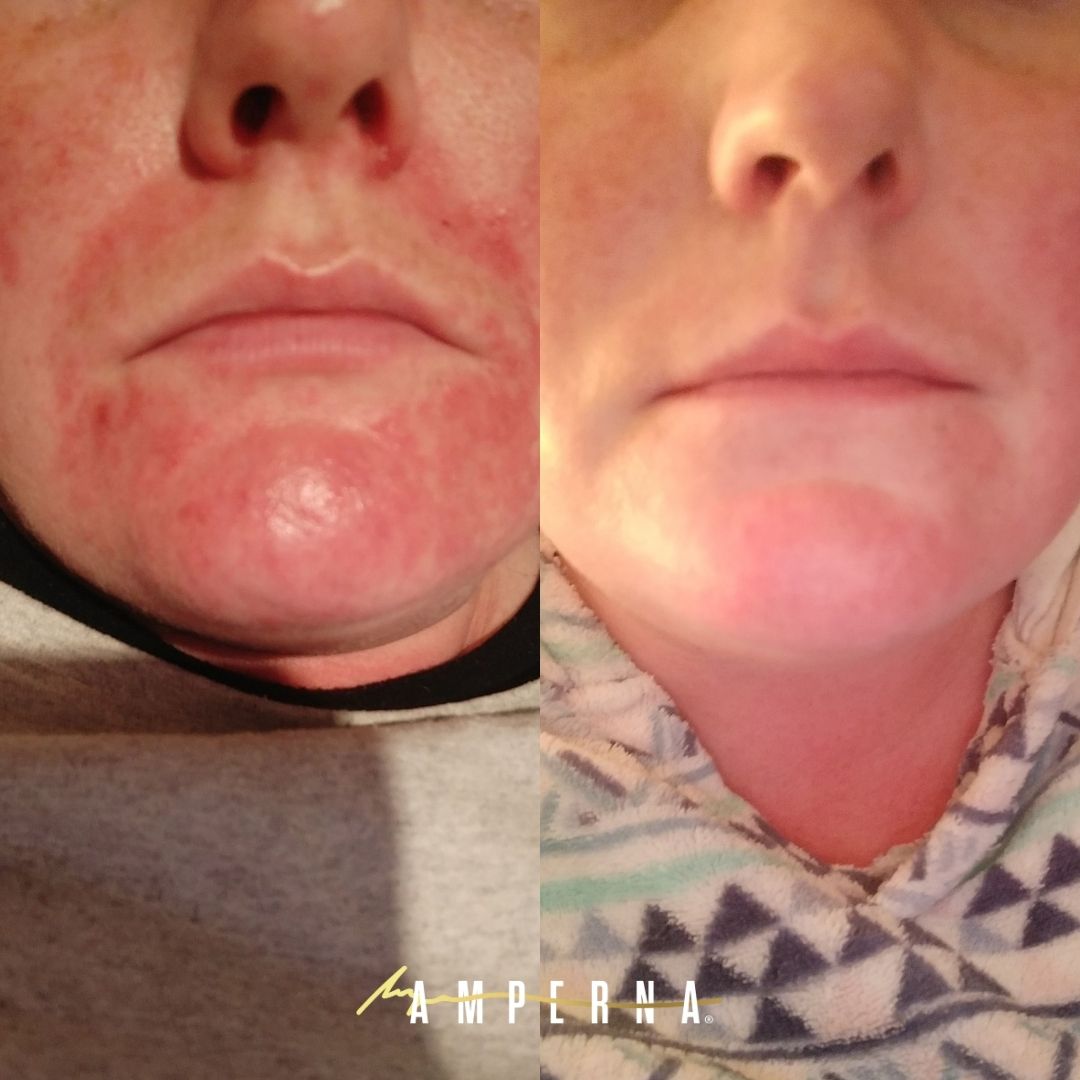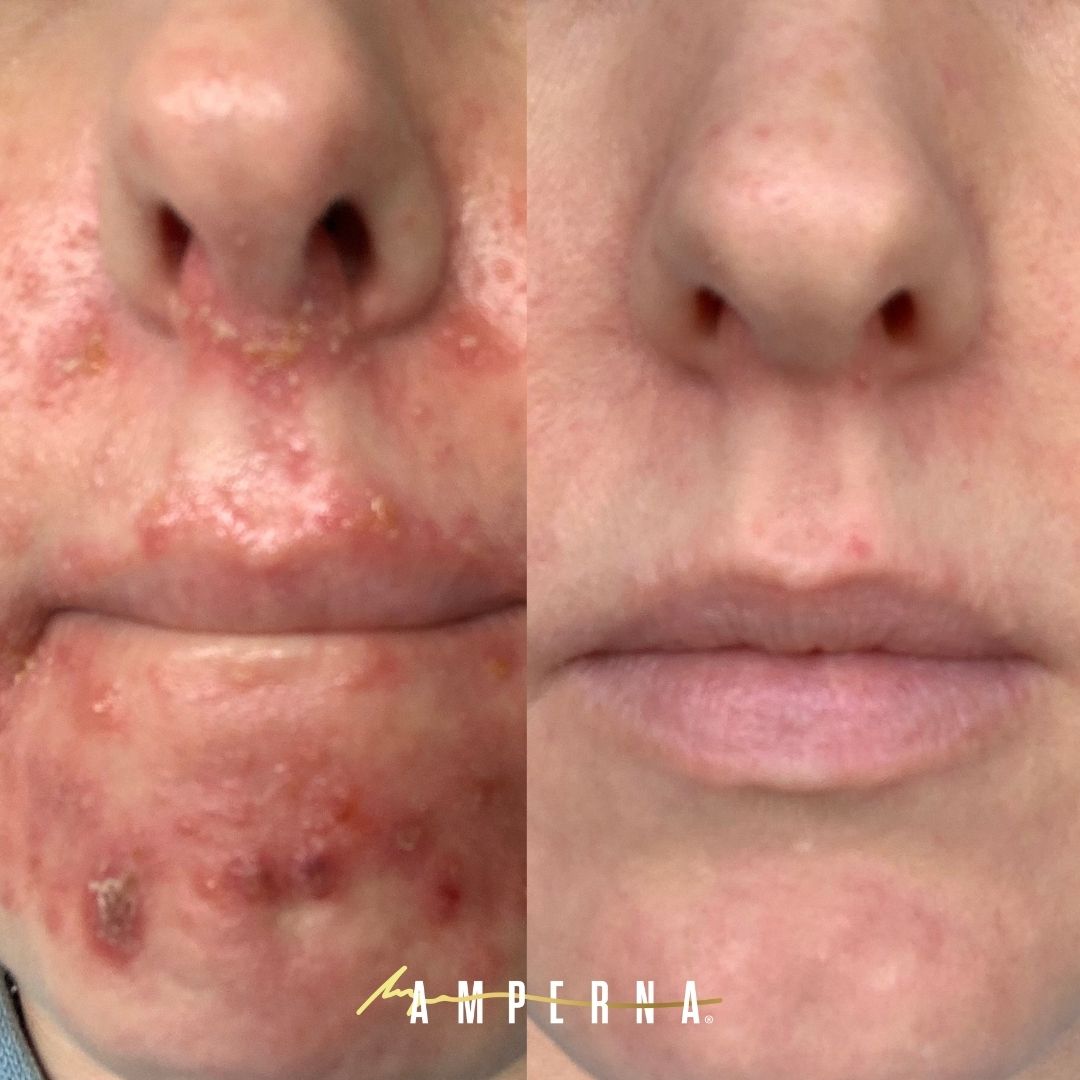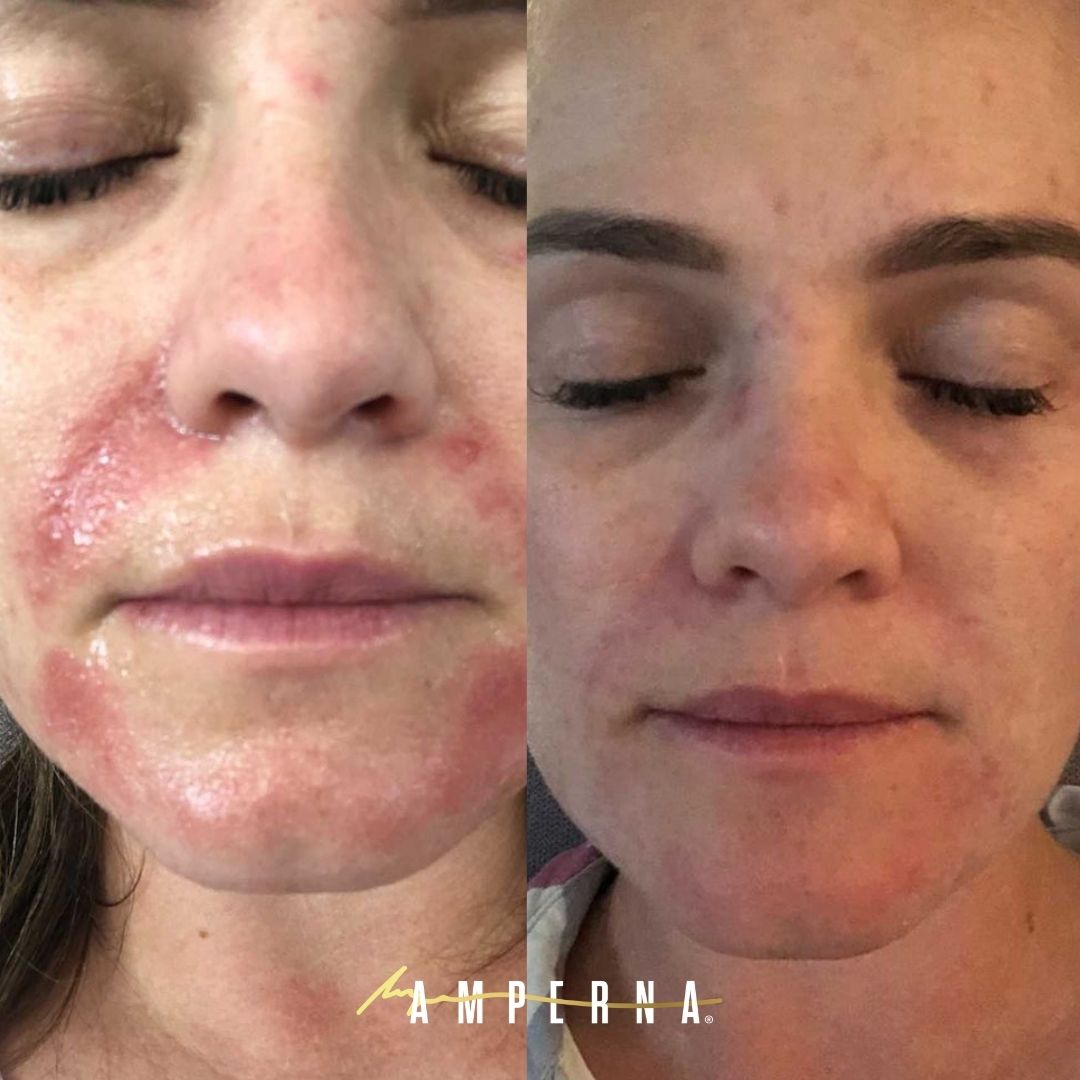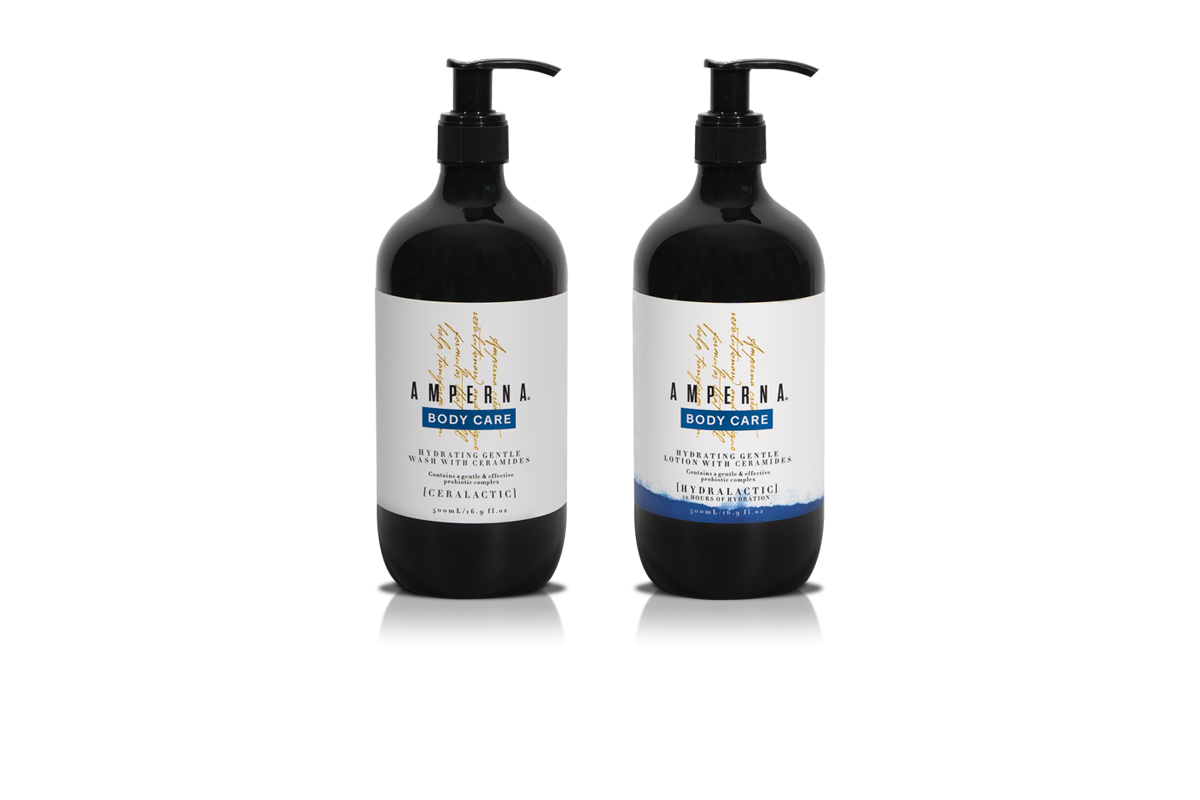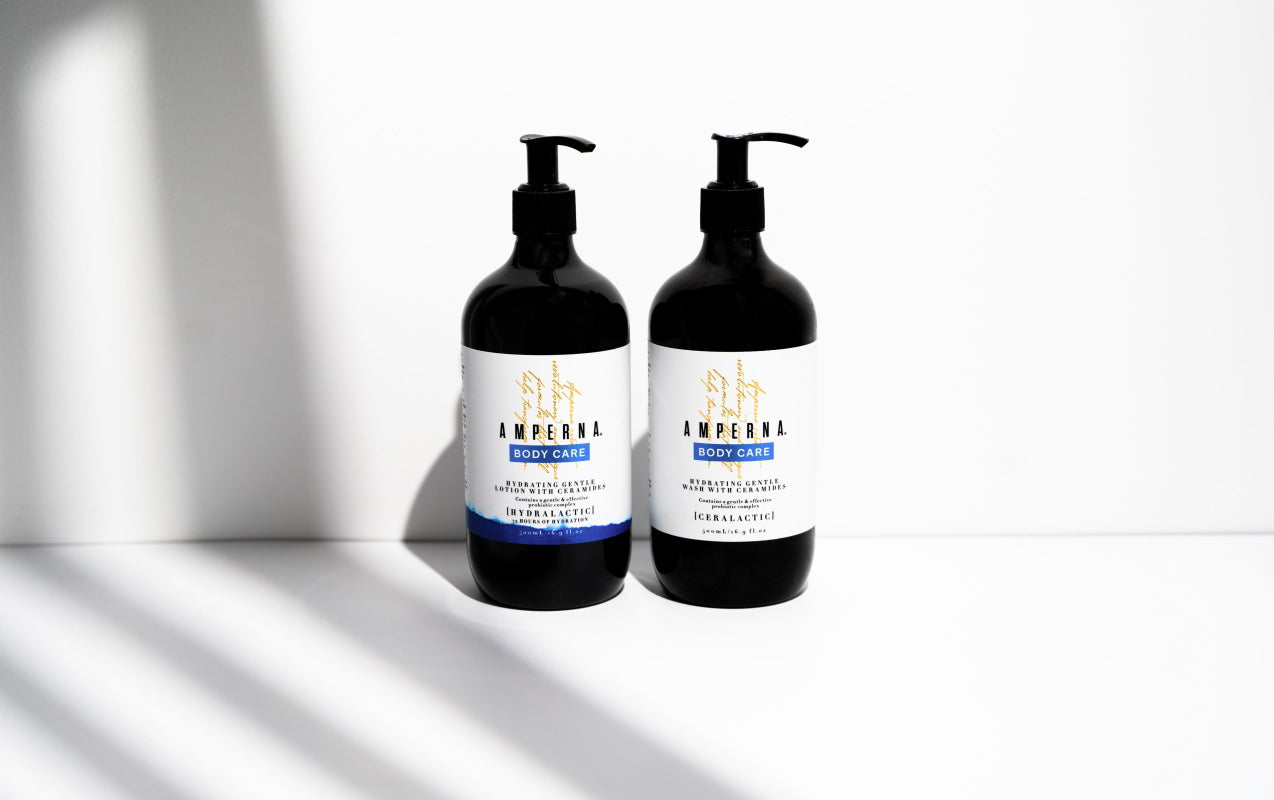Seborrheic Dermatitis
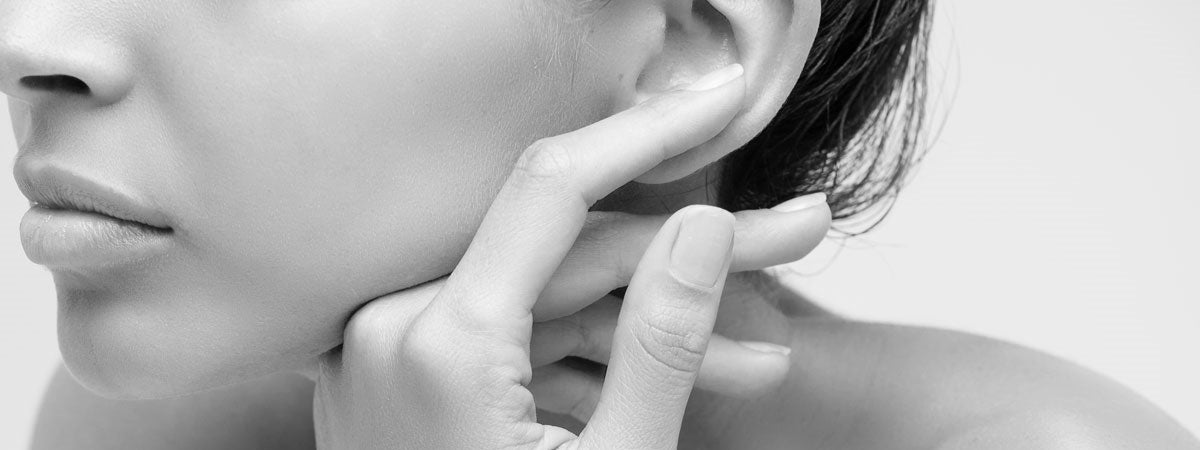
Seborrheic dermatitis is a common skin condition which effects the scalp and/ face. The condition usually affects areas that are rich in oil glands and hair follicles such as the eyebrows, sides on the nose, eyelids, behind the ears and chest.
Products for Seborrheic Dermatitis Prone Skin
Let customers speak for us
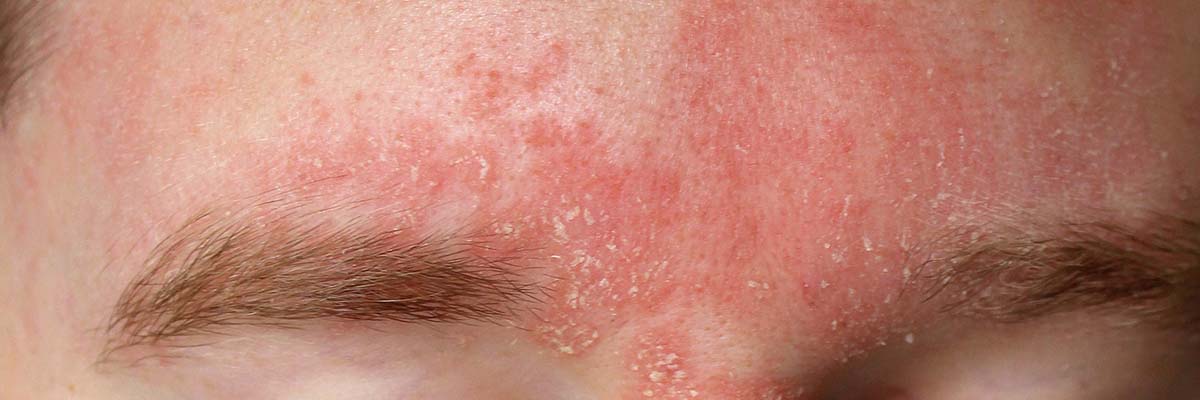
‘I’ve had perioral dermatitis, rosacea andseborrhoic dermatitis for over 12 years. I’ve used: every steroid cream under the sun, antibiotics, and elidel to keep the rashes under control around my nose and chin. I’ve been using Amperna now for eight months and my skin has never looked better.’
Megan
Seborrheic Dermatitis sufferers can apply the AMPERNA® Lightweight Soothing+ Emulsion moisturiser morning and night or throughout the day if required. This moisturiser contains ceramides, hyaluronic acid and emollients to help nourish the skin and protect it from free radical damage. AMPERNA® Lightweight Soothing+ Emulsion moisturiser won’t clog pores and contains sage extract to help cool, soothe and nourish skin.
AMPERNA® Probiotic+ DS Soothing Serum is a deeply restorative formula that helps cool and soothe irritated skin and calm redness. The copper and zinc gluconates help to limit bacterial proliferation and replenish the skin barrier. AMPERNA® Probiotic+ DS Soothing Serum contains a unique probiotic complex that helps refresh the appearance of skin. This is our no nasties steroid alternative and can be used on the face and body.
You might like to buy the AMPERNA® Probiotic+ DS Soothing Serum and the AMPERNA® Lightweight Soothing+ Emulsion in the Soothing Duo bundle.
AMPERNA® Ultra Gentle Soothing Cleanser [BALANCE] is a light gel cleanser. This ultra gentle formulation rinses clean without leaving an irritating residue or upsetting pH levels. It contains an infusion of sage and cucumber extracts to help cool, soothe and nourish skin. The AMPERNA® range is suitable for all skin types and has been tested on eczema, seborrheic dermatitis, dermatitis, perioral dermatitis, rosacea and acne prone skin.
BODY CARE Hydrating Gentle Wash with Ceramides and BODY CARE Hydrating Gentle Lotion with Ceramides
Our BODY CARE Hydrating Gentle Wash with Ceramides is free from soap & can be used by people of all ages. Our Hydrating Gentle Wash contains silverion which has antibacterial properties, lactic acid & colloidal oatmeal.
Our BODY CARE Hydrating Gentle Lotion with Ceramides offers 72 Hours of Hydration. It’s fast absorbing, non-greasy and won’t clog your pores. Our Hydrating Gentle Lotion contains silverion which has antibacterial properties, salicylic acid, lactic acid, pentavitin & colloidal oatmeal. A little goes a long way.
Use this with the Probiotic+ DS Soothing Serum on your body for seborrheic
dermatitis flare ups.
SYMPTOMS OF SEBORRHEIC DERMATITIS
Redness and inflammation: The affected areas of the skin can become red, swollen, and irritated.
Itching: Seborrheic dermatitis can cause intense itching, which may lead to further irritation.
Scaling and flaking: One of the hallmark signs of seborrheic dermatitis is the presence of greasy, yellowish, or white scales or flakes on the skin.
Crusting: The scales and flakes may start to crust, especially when the affected areas are scratched repeatedly.
Oily or greasy skin: Seborrheic dermatitis affects areas of the body with a higher concentration of oil glands, such as the scalp, face, and chest. As a result, these areas may appear oily or greasy.
Hair loss: In severe cases, hair loss may occur, but it is uncommon and usually temporary.
WHAT CAUSES SEBORRHEIC DERMATITIS?
Seborrheic dermatitis is caused by numerous factors, including an inflammatory reaction to an excess type of yeast on the skin called Malassezia. Yeast is naturally present on the skin, but in individuals with seborrheic dermatitis, it can cause an immune response leading to the development of symptoms.
Additionally, factors such as excess oil production in the skin, a weakened immune system, hormonal changes, and genetic predisposition are believed to contribute to the development of seborrheic dermatitis.
It is important to note that triggers can vary between individuals, so it is essential to pay attention to your specific triggers and manage them accordingly with appropriate treatments and lifestyle adjustments. If you suspect certain triggers are causing or exacerbating your seborrheic dermatitis, consult with a healthcare professional for guidance.
TRIGGERS FOR SEBORRHEIC DERMATITIS:
Triggers for seborrheic dermatitis can vary from person to person, but common factors have been identified, these triggers can include:
Stress: High stress levels have been associated with the onset or worsening of seborrheic dermatitis.
Weather: Cold, dry or changes in temperature and humidity can aggravate the condition.
Hormonal changes: Fluctuations in hormones can contribute to seborrheic dermatitis.
Certain medical conditions: Individuals with psoriasis, HIV, acne, rosacea, Parkinson's disease, epilepsy, alcoholism, depression or eating disorders may have an increased risk of developing seborrheic dermatitis.
Certain medications: Such as lithium, interferon, and certain anti-seizure drugs, can trigger or worsen seborrheic dermatitis.
Skin oiliness: Excess oil production on the skin can contribute to seborrheic dermatitis, as the yeast that causes the condition thrives in oily areas.
HOW TO HELP TREAT SEBORRHEIC DERMATITIS
Depending on your individual condition, the location, severity, genetics, and medical history there here are several approaches you can consider. These include:
Medications: Your doctor may recommend medicated shampoos, creams, or lotions containing ingredients like selenium sulphide, ketoconazole, or pyrithione zinc to help reduce inflammation and control fungal growth. These are available as both prescription medication and over the counter.
NOTE: These ingredients work well as medicated shampoos when treating seborrheic dermatitis on the scalp.
However we urge caution to use products with these ingredients for treating seborrheic dermatitis scales and redness on your face.
Gentle cleansing: Use a gentle cleanser or shampoo to cleanse the affected areas, such as the scalp, face, or body. Avoid harsh products that may aggravate the condition.
Moisturise: Applying a moisturiser can help soothe dryness and reduce flaking. Look for non-comedogenic and fragrance-free options to minimise irritation.
Lifestyle changes: Certain lifestyle factors may contribute to seborrheic dermatitis. Managing stress, getting enough sleep, and maintaining a healthy diet and exercise routine may help improve the condition.
INGREDIENTS TO AVOID IF YOU HAVE SEBORRHEIC DERMATITIS
Sulphates are foaming agents commonly found in cleansers and shampoos. They can be harsh and strip the skin of its natural oils, potentially worsening seborrheic dermatitis. Use sulphate-free hair products and cleansers.
Fragrances are known to be potential irritants for sensitive skin. They can trigger allergic reactions and worsen seborrheic dermatitis symptoms.
Alcohol-based products, such as toners or astringents, can be drying and irritating to the skin. Avoid using alcohol-heavy products as they may further aggravate seborrheic dermatitis.
